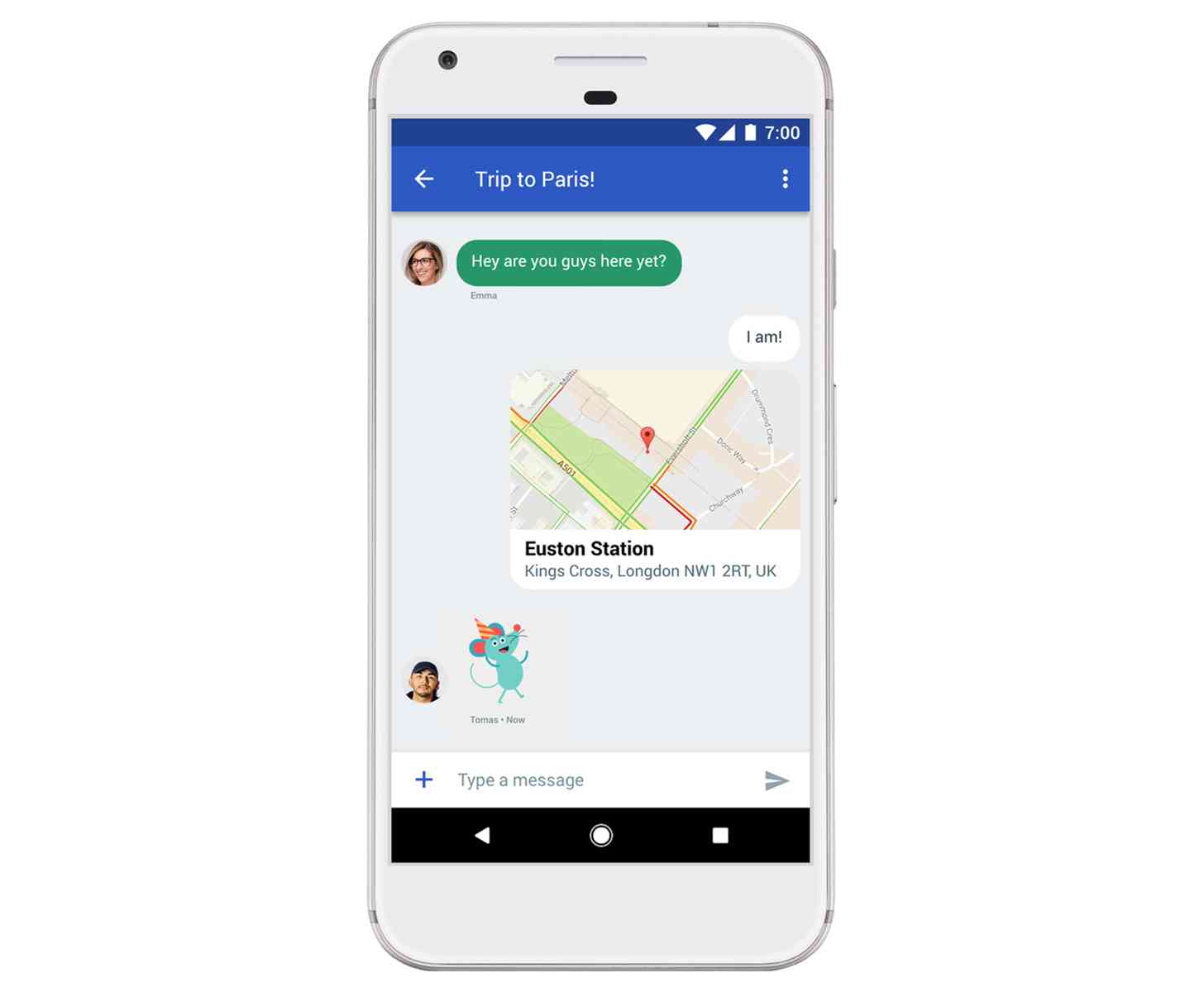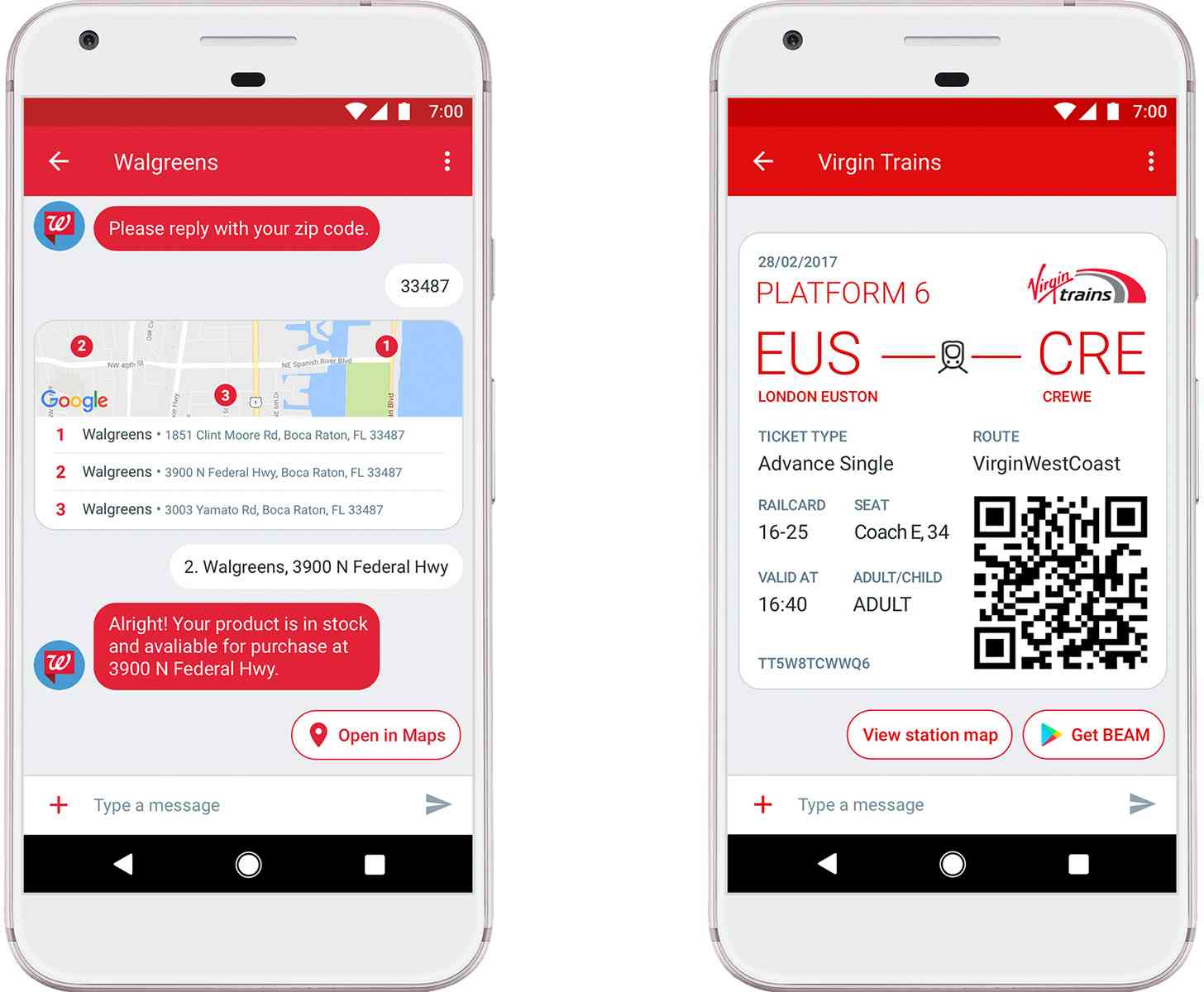
Google is making another big push for RCS (Rich Communications Services) messaging.
Google today announced that it’s renaming its Messenger for Android app to Android Messages. This app will be preloaded on Android phones from Orange, Deutsche Telekom, and Globe, as well as devices launched in 10 markets by Vodafone. These carriers are joining Sprint, Rogers, and Telenor is backing Google’s RCS initiative.
Several Android device makers have joined Google’s RCS effort, too. The following manufacturers have all agreed to preloaded Android Messages as the default messaging app on their devices:
LG, Motorola, Sony, HTC, ZTE, Micromax, HMD Global - Home of Nokia Phones, Archos, BQ, Cherry Mobile, Condor, Fly, General Mobile, Lanix, LeEco, Lava, Kyocera, MyPhone, QMobile, Symphony, and Wiko, along with Pixel and Android One devices
Finally, Google says that it’s working with businesses to help them use RCS to better serve customers. Google is creating an Early Access Program to help these business learn about RCS, build their services with it, and be the first to offer it to their customers.
The first businesses that’ll take part in the Early Access Program are:
Virgin Trains, Walgreens, Amber Alert Europe, Baskin-Robbins, BlaBlaCar, FICO, Gamestop, G2A.com, IHG, LexisNexis Risk Solutions, Naturas, Papa Murphy’s, Philips, Porto Seguro, Sky, SONIC® Drive-In, Subway, and Time Inc.
With RCS, businesses can send rich and interactive messages to their customers. For example, an airline can send a boarding pass and a terminal map to a customer using RCS messaging.

RCS is a major update to the SMS messaging experience that most folks are used to. With RCS, you can get real-time chat with typing indicators, high-quality image sharing, group chat, and read receipts. The catch is that everyone participating in these chats must have RCS in order to take advantage of the features.
We’ve seen a few different RCS initiatives to date, so there hasn’t yet been one version that’s gained much traction. While Google’s effort is still missing some big name partners, including AT&T, T-Mobile, and Verizon in the US, the service does seem to be doing well so far. It’ll be interesting to see if Google can get those big names on board, too.